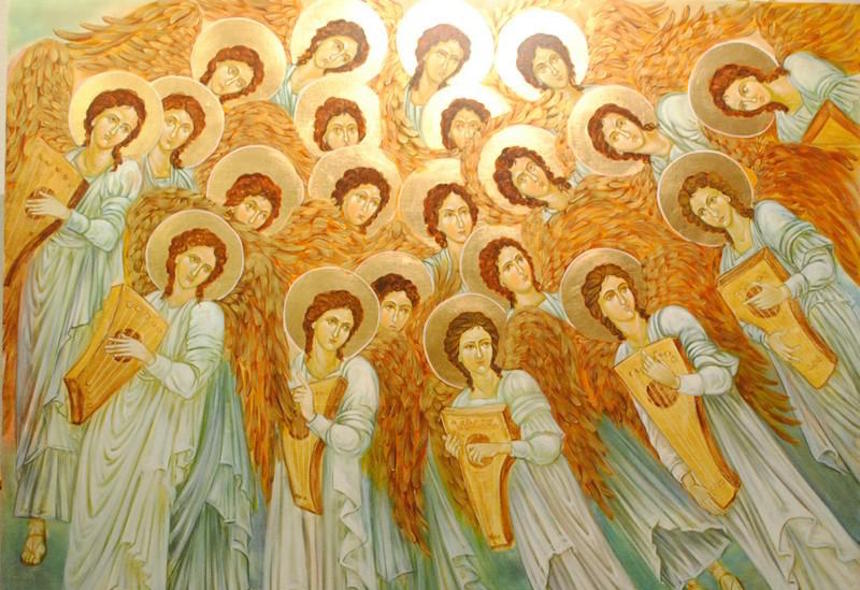Qur’an Cover-to-Cover: Day 23 (“Those who set the ranks”)

It’s another long one today, one hundred and eighty-two verses.
Surah 37 – “Those who set the ranks” (As-Saaffat)
The chapter opens with Allah swearing by the different angels that “your God is One”.
We are then treated to a description of Heaven’s defense system. We are told that an “adornment of stars…[act] as protection against every rebellious devil [so] they may not listen to the exalted assembly [of angels]” and “are pelted from every side” by flaming meteors. I believe this is a reference to the jinn we read about earlier who eavesdrop on Heaven and report what they hear to soothsayers.
We return to Muhammad’s critics, the Final Judgment and the Resurrection. Paradise and Hell are described in the usual sensual terms. Those in Paradise speak to their companions who ended up in Hell, saying “By Allah, you almost ruined me. If not for the favour of my Lord, I would have been of those brought in [to Hell]”. This rather reminded me of the Christian saying “…but for the grace of god go I”. The accommodation in Hell is described as “the tree of zaqqum…a tree issuing from the bottom of the Hellfire”, whose fruit is eaten by those in Hell, and after which they will drink “a mixture of scalding water”.
Noah is briefly mentioned, but the next section focuses on Abraham. We hear about a time when Abraham questioned his people’s idols, asking them why they don’t eat or speak. This culminates in him slapping one of them. When the people rush towards him, Abraham asks them “Do you worship that which you [yourself] carve?”, and for this they try to burn him.
No mention is made of Abraham leaving his home and travelling to a foreign land. However, we do hear about his for a son. We’re not told how this came about. However, we are told that when the son reached an age when he could work, Abraham tells him that he has seen in a dream that he must sacrifice him. The son responds saying “O my father, do as you are commanded. You will find me, if Allah wills, of the steadfast”. Abraham is then told that Allah “ransomed him [your son] with a great sacrifice”, which my footnote says means that Allah sent a huge ram in his place, much like the Biblical version of the story. Unlike the Biblical story, however, Muslims understand this son to be not Isaac, but his older half-brother Ishmael! Only after this story are we told about Allah sending “good tidings of Isaac”. We then hear about Moses, Aaron, Elias and Lot. The story of Jonah is also briefly outlined.
We began this chapter with the mention of angels and we now return to the subject. The people of Mecca apparently believed that angels were the daughters of Allah. In response to this, Muhammad is told to demand a scripture which says this. The Meccans also appear to claim that there is a lineage between Allah and the jinn. The chapter concludes by quoting the angels themselves, refuting the claims of the Meccans.
Q1. Are the “devils” in ayah 7 the jinn we were told about in Surah 72?
Q2. Are we to take the description of Heaven’s defenses literally? How do stars stop devils? Are meteors meant to be understood as chasing them off?
Q3. Are the “them” in ayah 11 Muhammad’s critics? What is the issue being addressed? Is it simply that Allah created man and will therefore be able to resurrect man?
Q4. Is there any significance that the wine shared in Paradise as being “white”?
Q5. What is the meaning of “the tree of zaqqum”?
Q6. Why does Abraham say he is ill in ayah 89? Was it just to get rid of his brethren so that he could question the idols?
Q7. In ayah 97, Abraham’s people intend to burn him alive “but We made them the most debased”. Does this just mean that they failed in their plan?
Q8. Why does Abraham put his son “down upon his forehead”? Are they just praying, or is he about to execute him?
Q9. My footnote says that Jonah sinned because he has “given up on his people”. Does Islam assume that Jonah was from Nineveh?
Q10. Are the soldiers mentioned in ayah 173 men or angels?
I’m pleased I finally got to the bottom of the issue concerning Isaac and Ishmael. I had heard before that their roles are somewhat switched in Islam, but I wasn’t sure why this was thought. At least now I know that it comes from inferences from the Qur’an.
Thanks to lots of repeated material, this chapter was actually quite easy to summarize! Tomorrow will be my last day of Qur’an writing as I will be at the halfway point. See you then!
